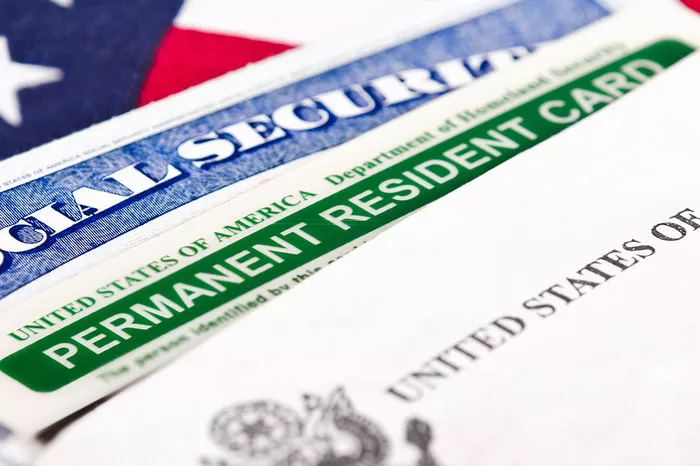The journey towards obtaining a green card, which grants lawful permanent residence in the United States, often involves sponsorship by a qualifying individual or entity. This sponsorship, typically through family, employment, investment, or humanitarian channels, is a pivotal aspect of the U.S. immigration system. Understanding who can sponsor for a green card is crucial for both prospective immigrants and those who wish to assist them. In this comprehensive guide, we delve into the various categories of sponsors, eligibility criteria, and the process involved.
Family Sponsorship
Family-based immigration remains one of the primary avenues for obtaining a green card. U.S. citizens and lawful permanent residents (green card holders) can sponsor certain family members for immigration to the United States. The following categories exist within family sponsorship:
1. Immediate Relatives:
Immediate relatives of U.S. citizens, including spouses, unmarried children under 21 years old, and parents (if the sponsor is over 21 years old), are given priority in the immigration process. There is no annual cap on the number of visas issued in this category, making it one of the fastest routes to a green card.
2. Family Preference Categories:
Beyond immediate relatives, U.S. citizens can also sponsor certain other relatives under family preference categories. These include unmarried sons and daughters over 21 years old, married children of any age, and siblings (if the sponsor is over 21 years old). Lawful permanent residents can sponsor spouses, unmarried children under 21 years old, and unmarried sons and daughters over 21 years old.
Employment-Based Sponsorship
Employment-based immigration provides avenues for skilled workers, professionals, and investors to obtain green cards. Employers play a crucial role in sponsoring employees for permanent residency. The employment-based green card categories include:
1. EB-1 Priority Workers:
Individuals with extraordinary abilities in sciences, arts, education, business, or athletics, outstanding professors and researchers, and certain multinational executives or managers fall under this category. Employers can sponsor such individuals without the need for a labor certification.
2. EB-2 Professionals with Advanced Degrees or Exceptional Ability:
This category includes professionals holding advanced degrees or their equivalent, or individuals with exceptional ability in their field. Labor certification and a job offer from a U.S. employer are typically required.
3. EB-3 Skilled Workers, Professionals, and Other Workers:
This category encompasses skilled workers (with at least two years of training or experience), professionals (with a bachelor’s degree or its equivalent), and other workers (those performing unskilled labor). Labor certification and a permanent job offer are usually necessary.
4. EB-4 Special Immigrants:
Certain special immigrants, including religious workers, employees of U.S. foreign service posts, and other specific categories, may qualify for a green card under this category.
5. Investment-Based Sponsorship (EB-5 Visa):
The EB-5 Immigrant Investor Program offers green cards to foreign investors who invest a specified amount of capital into a new commercial enterprise that creates jobs for U.S. workers. To qualify, investors must meet certain requirements, including:
Investing at least $1.8 million in a new commercial enterprise (or $900,000 in a targeted employment area).
Creating or preserving at least 10 full-time jobs for qualifying U.S. workers within two years of the immigrant investor’s admission to the United States.
Humanitarian Sponsorship
Humanitarian programs offer green cards to individuals fleeing persecution, violence, or other forms of hardship in their home countries. The main humanitarian pathways include:
1. Refugee Status:
Refugees are individuals who are unable or unwilling to return to their home country due to a well-founded fear of persecution based on race, religion, nationality, political opinion, or membership in a particular social group. They may be sponsored for a green card after one year of being admitted to the United States as a refugee.
2. Asylum Status:
Asylum seekers are individuals who are already in the United States or at a port of entry and apply for protection based on similar grounds as refugees. They must demonstrate a credible fear of persecution to qualify for asylum and may apply for a green card after one year of being granted asylum.
3. Humanitarian Parole:
In exceptional circumstances, individuals may be granted humanitarian parole for urgent humanitarian reasons or significant public benefit. Although not a direct path to a green card, parolees may be eligible to adjust their status to that of a lawful permanent resident under certain circumstances.
Additional Considerations
1. Financial Requirements: Sponsors may need to meet certain financial criteria to demonstrate their ability to support the immigrant financially, ensuring they will not become a public charge.
2. Affidavit of Support: Most family and some employment-based immigrants are required to have a sponsor submit Form I-864, Affidavit of Support, to demonstrate they have adequate means of financial support in the United States.
3. Legal Assistance: Navigating the complexities of immigration law can be challenging. Seeking guidance from qualified immigration attorneys or accredited representatives can significantly improve the chances of a successful sponsorship process.
Conclusion
In conclusion, sponsorship for a green card is a multifaceted process that involves various eligibility criteria and requirements. Whether through family ties, employment opportunities, investment ventures, or humanitarian considerations, sponsors play a vital role in facilitating the immigration journey of individuals seeking lawful permanent residence in the United States. Understanding the nuances of sponsorship categories and seeking appropriate legal assistance are crucial steps towards achieving immigration goals and building a new life in the United States.


